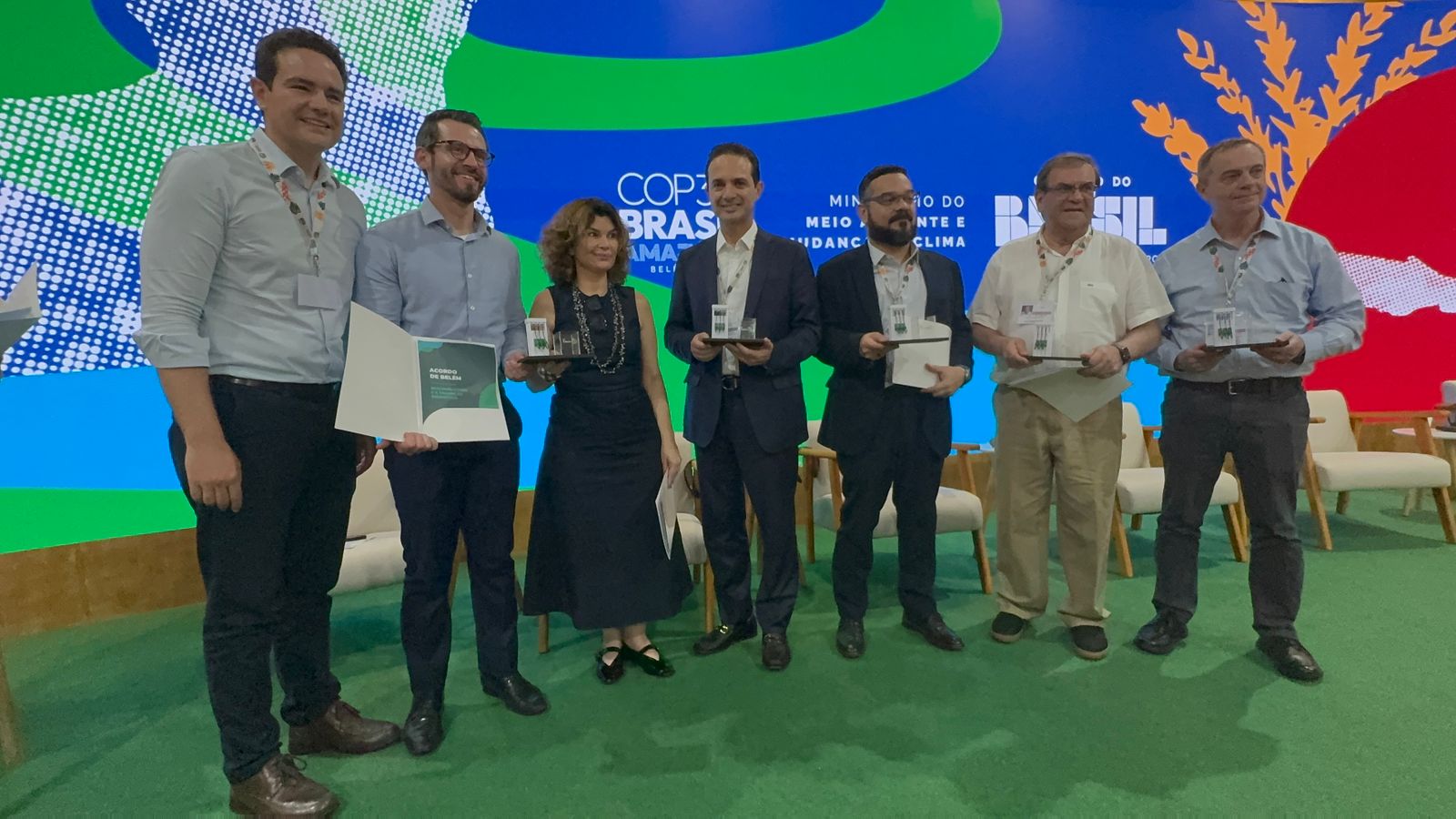The UNFCCC Climate Conference (COP30) is being held in Belém from November 10 to 21. Throughout the first week, alongside the official negotiations, several important forums and debates on energy transition took place, with Brazil’s bioenergy sector participating actively.
In the Blue Zone, the public is invited to take part in high-level discussions on low-carbon mobility. The Brazilian Sugarcane and Bioenergy Industry Association (UNICA), in partnership with 12 organizations from the bioenergy and automotive sectors, is hosting the Brazilian Sustainable Transportation Pavilion, where daily panels bring together experts to examine strategies for reducing transport-sector emissions and supporting countries in achieving their global climate goals.
UNICA and its associates hosted fifteen panels featuring experts who addressed a broad range of topics, including maritime biofuels, blending mandates, carbon-negative solutions, advances in biofuel production, carbon markets, sustainable aviation fuels, biomethane, and climate finance.
In addition, sustainable biofuels were prominently featured in several other forums, underscoring their importance in advancing a low-carbon future. Notable discussions took place at the Global Biofuels Alliance Pavilion (Green Zone), the Brazilian Pavilion (Green Zone), the Inter-American Institute for Cooperation on Agriculture (IICA) Pavilion, as well as the Japanese and Swedish national pavilions.
Another key highlight of the week was the launch of the bioenergy sector’s declaration on the Belém Accord. The declaration issues an international call to quadruple the production and use of sustainable fuels by 2035, in alignment with the recommendations of the latest International Energy Agency (IEA) report, Delivering Sustainable Fuels – Pathways to 2035.
The document — signed by the Brazilian Sugarcane and Bioenergy Industry Association (UNICA), the Brazilian Association of Automotive Vehicle Manufacturers (Anfavea), Bioenergia Brasil, and MBCBrasil Institute — was unveiled at COP30 during an event hosted by the Ministry of Mines and Energy. The occasion also marked the 50th anniversary of the Proálcool Program, highlighting Brazil’s long-standing leadership in decarbonizing mobility.
The second week of the conference is expected to feature further high-level discussions on energy security, clean energy systems, and pathways to help countries achieve their climate commitments. If you are attending COP 30, make sure you don’t miss our events.


